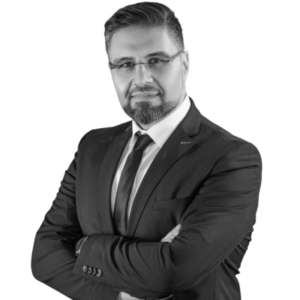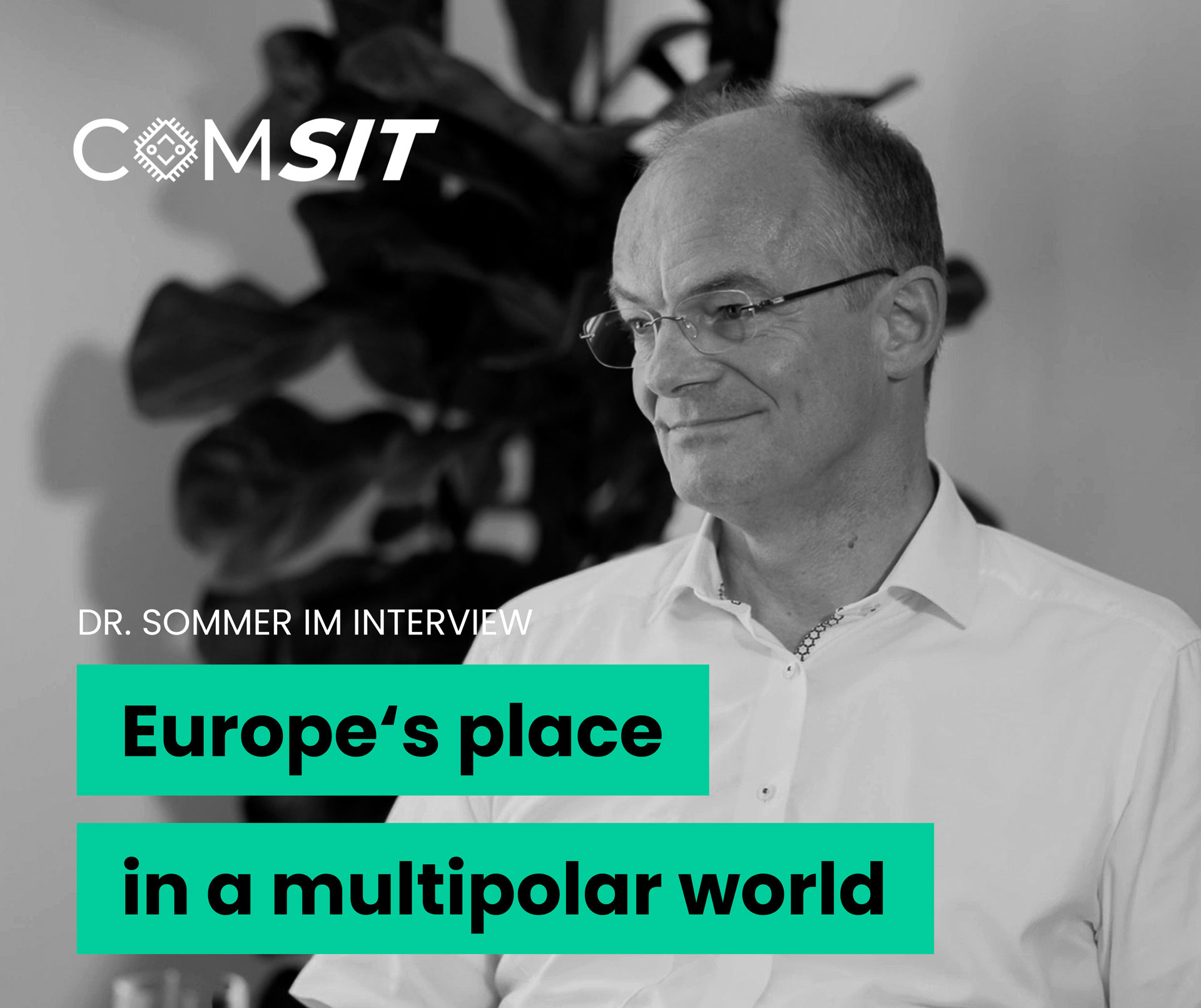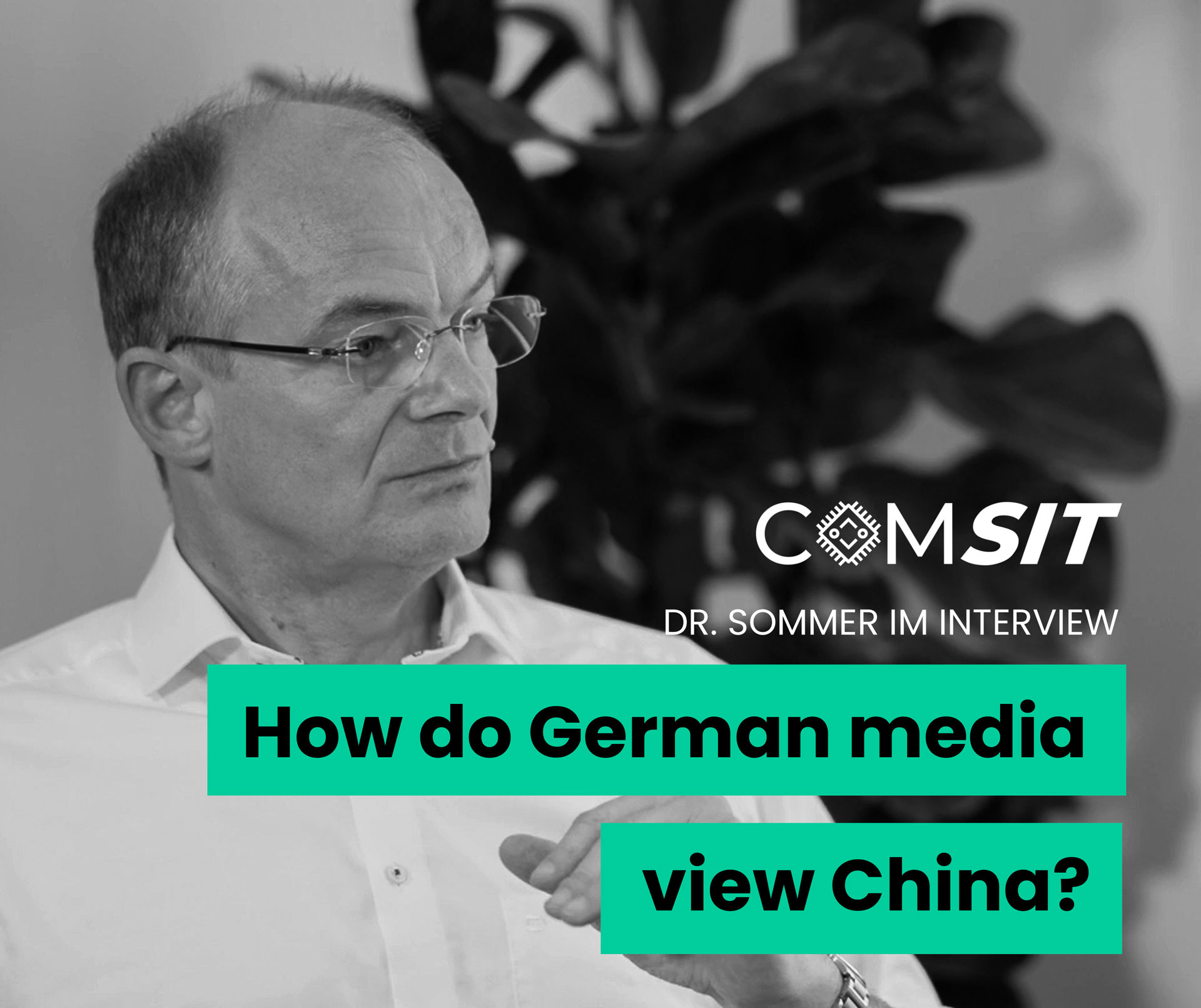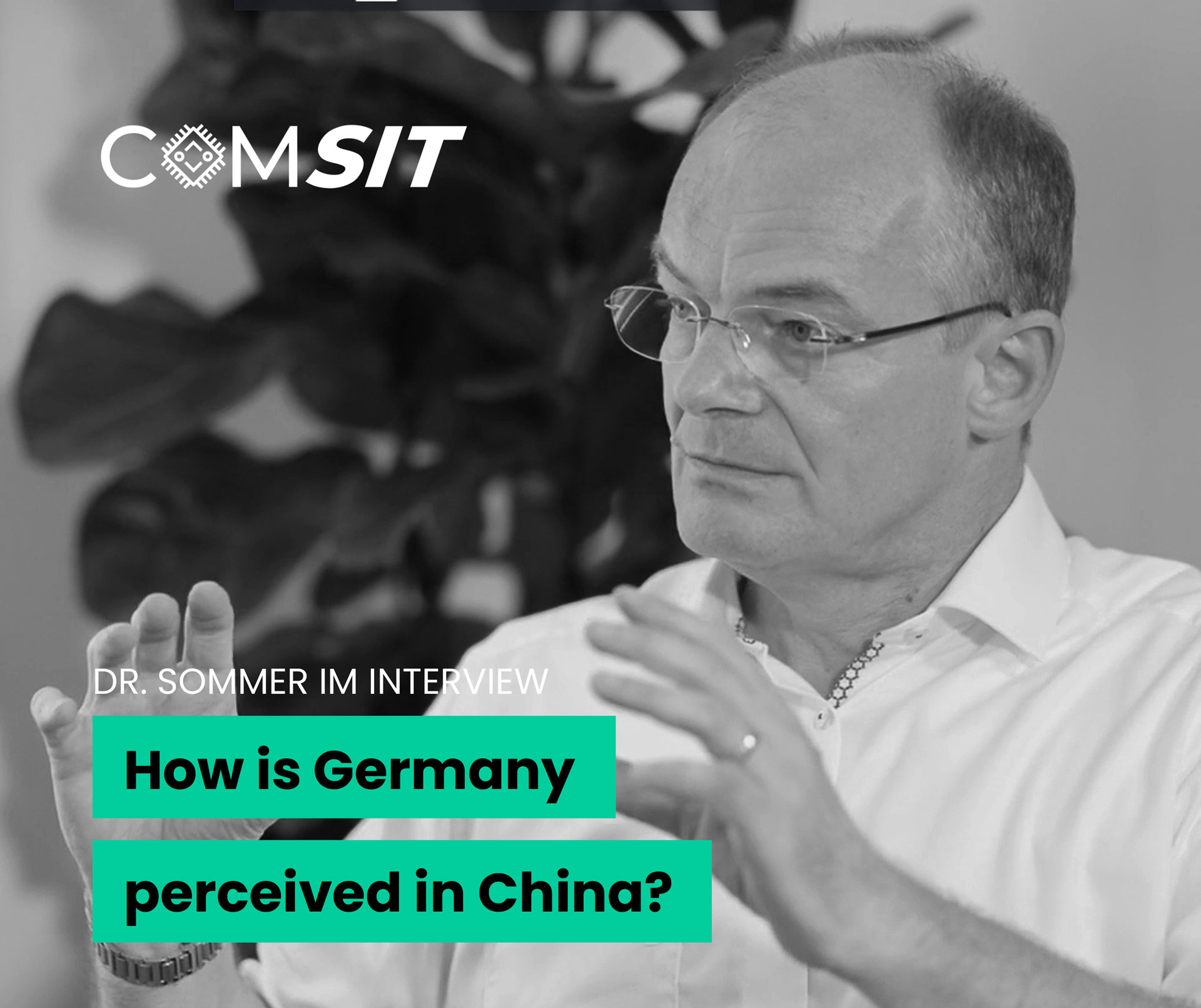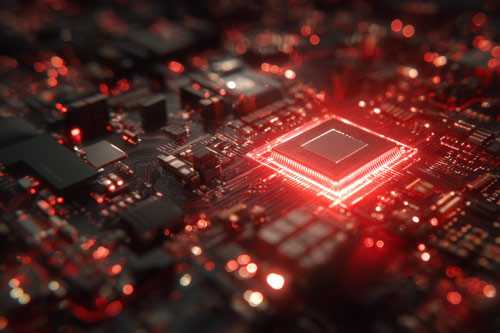TRANSATLANTIC INNOVATION WEEK 2023 - FIRAS MODAD, MODAD GEOPOLITICS
GEOPOLITICAL, SOCIAL AND ECONOMIC CHALLENGES IN THE SEMICONDUCTOR INDUSTRY
HOW TO SECURE THE FUTURE?
In collaboration with the U.S. Department of State and various partners in research, geopolitics, software development, and component procurement, our experienced speakers highlighted past and current developments to gain a better understanding of the impact of chip-based high technology on the cultural, political and economic situation of open democracies. This was followed by approaches to solutions aimed at making supply chains more independent, reducing costs, saving CO2 emissions, energy and raw materials and, above all, operating more sustainably. The speakers are all absolute experts in their field and offer insights into a world that is unique and extremely valuable, especially against the backdrop of hybrid conflicts.
Chapter 2.1: FIRAS MODAD, MODAD GEOPOLITICS
Firas Modad (Modad Geopolitics) is a Middle East and geopolitics expert. He specialises in the conflict between Iran, Turkey and Saudi Arabia; the geopolitical confrontation between the US-led camp and the Chinese-Russian axis; and the emergence of a new non-aligned bloc. He has worked extensively with industry leaders in the insurance, energy and security sectors.
Topic: Chipwar
The confrontation between the US, Europe and Japan on the one side and Russia, China and Iran on the other seems set to dominate the next decade, if not the next century. This confrontation is taking both an economic and military dimension. Economically, both the US and China are seeking to clear their military supply chains of the other side’s influence, and perhaps to disentangle their economies more broadly. Militarily, China is engaged in a build up aimed at giving it the option of taking Taiwan militarily, while the US is building alliances such as the Quad (US, India, Japan and Australia) and AUKUS (Australia, UK, US) intended to contain China’s rise. This alliance building is reminiscent of the pre-WWI era, and risks escalating similarly. Corporate strategists need to be aware of this conflict, and its various escalation pathways, to manage the adverse impacts on their businesses.
You are currently viewing a placeholder content from Vimeo. To access the actual content, click the button below. Please note that doing so will share data with third-party providers.
More Information
